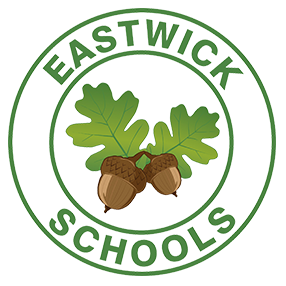Music
National Curriculum Purpose of Study
Music is a universal language that embodies one of the highest forms of creativity. A high-quality music education should engage and inspire pupils to develop a love of music and their talent as musicians, and so increase their self-confidence, creativity and sense of achievement. As pupils progress, they should develop a critical engagement with music, allowing them to compose, and to listen with discrimination to the best in the musical canon.
National Curriculum Aims
The national curriculum for music aims to ensure that all pupils:
- perform, listen to, review and evaluate music across a range of historical periods, genres, styles and traditions, including the works of the great composers and musicians
- learn to sing and to use their voices, to create and compose music on their own and with others, have the opportunity to learn a musical instrument, use technology appropriately and have the opportunity to progress to the next level of musical excellence
- understand and explore how music is created, produced and communicated, including through the inter-related dimensions: pitch, duration, dynamics, tempo, timbre, texture, structure and appropriate musical notations.
Music at Eastwick - Intent
The music curriculum at Eastwick meets the requirements of the National Curriculum and our Curriculum Intent. It prepares children to be ‘Ready for Everything’ in their futures in terms of:
- Success in the next stage of their education and beyond: by providing knowledge of musicianship, listening, singing, notation, playing instruments, improvising and composing, performing and evaluation
- their ability to navigate life’s personal Challenge: to perform in front of an audience, to develop their own wellbeing through music and to appreciate and enjoy a wide range of musical styles and genres; by developing resilience through understanding that practice leads to success; building self-confidence through performance
- understanding their place in communities at global, national and local levels and seize the Opportunity of the future: by learning and demonstrating the school value of respect in how they use instruments and collaborate in their learning and performances.
Music at Eastwick - Implementation
- In Reception, specific teaching opportunities are used to introduce elements of music.
- In Years 1-6, our curriculum follows the Charanga English Model Music Curriculum scheme.
- Knowledge is built progressively throughout Key Stages 1 and 2. For each unit, the following is identified:
- 'knowledge end points' ('I know (that)...' or 'I know how to...' outcomes that children are expected to master by the end of the unit)
- ‘substantive knowledge strands’ (key themes and vocabulary that form the basis of children’s mental mind maps or schemas, which enable pupils to recall and build on prior knowledge)
- 'disciplinary knowledge', which is taught implicitly and enables children to ‘walk in the expert’s shoes’.
- Pupils revisit the substantive knowledge strands as they progress through the school. Each time a strand is revisited, prior knowledge is recalled before it is covered with greater complexity or in a different context, therefore increasing children’s breadth and depth of knowledge.
- Across Key Stages 1 and 2, pupils are taught six units per year which equates to one per half term.
- Provision is made for all pupils, including those with SEND, by teachers providing suitable access arrangements as part of their 'Quality First Teaching' offer, adapting resources and activities to meet individual children’s needs.
- Children use glockenspiels from Years 1 to 6 in the Charanga scheme for consistency and to promote progression of knowledge.
- Further exposure to musical styles and opportunities for children to sing are provided in weekly singing assemblies for Years 1-6.
Curriculum Progression
Please visit the Subject Progression Documents page for details of curriculum progression in knowledge end points, substantive knowledge strands and disciplinary knowledge from Reception to Year 6.
Music at Eastwick - Impact
- The music subject leaders, in conjunction with senior leaders and others, carry out monitoring of provision. This takes the form of pupil voice, lesson observation and work scrutiny.
- We know that teaching is impactful on children’s progress when:
- children demonstrate that they have built progressively complex ‘schemas’ in their long-term memory for each of the substantive knowledge strands. This is demonstrated when they can recall prior knowledge and learning, and master the knowledge in each progressive step in the curriculum because they have mastered the knowledge gained in previous steps and built on it
- children show increasing mastery of disciplinary knowledge as they progress through the curriculum
- children therefore show that they 'know more and remember more' after each unit of learning.
Music Development Plan
From September 2024, schools are obliged to publish a music development plan, as set out in the national plan for music education.
Eastwick Schools Music Development Plan 2024-25

